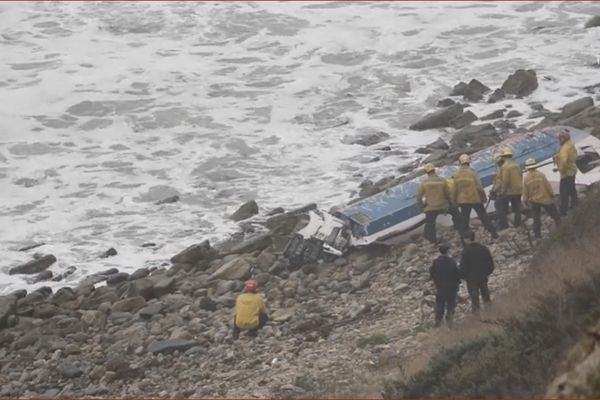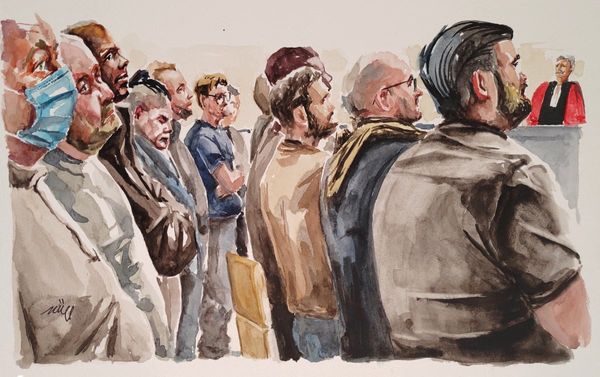
News Corp in Australia has a perception problem. No, not the one you think: political alignment is its business model. Its challenge is the growing gulf between how other journalists and the political class assess its power and how the market assesses its value.
In politics, it’s feared. In media, it’s accommodated. In the market, it’s shrugged off.
News Corp isn’t taking this lying down. It’s working to monetise its power by entrenching its self-contained media and political ecosystem, built on its twinned internal cultures of a strutting “we’re the biggest” dominance and its self-image as an embattled redoubt under siege from dangerous elites.
The latest step? The launch of a News Corp-shaped Digital News Academy in the Business School of Melbourne University with funding support from Google. It’s raised eyebrows in journalism academia where it’s seen as a step back to a more technical trade for corporate hackwork rather than the more professional, more questioning, craft that the global industry has been striving to build.
Andrew Dodd, director of the university’s Centre for Advancing Journalism, was unimpressed (and, apparently, unconsulted). He told the Guardian: “News Corp is seeking to work with the business school so as to avoid the kind of questioning culture of liberal arts and humanities faculties. It’s a reflection, really, of the antagonism that News Corp has had for university journalism programs over many years.”
Yeah, so? responded proposed academy head Campbell Reid, a former editor of The Daily Telegraph and The Australian, and now the Murdoch corporate affairs voice in Australia. News Corp, he said, wants journalism that’s “fit for a commercial purpose right from the moment of creation”.
News Corp’s local head, Michael Miller, ticked the outcome boxes. The academy, he said, would provide “the toolkit, skillset and mindset to meet the opportunities that digital media provide”.
The academy will be guided by a panel of seven from News Corp (including some of its remaining outstanding journalists) and three from Google, plus academy director Sonja Heydeman. It aims to churn about 250 mainly News Corp journalists through a focus on digital skills, using Google products. Other smaller companies will be able to participate as well.
It’s as much about validating News culture as digital skills: “mindset” according to Miller; “institutional knowledge” says Reid; “organisational learning,” nods business school dean Ian Harper.
It’s not the first time News Corp has set up its own structures out of unhappiness with the industry standard. About 20 years ago, frustrated with the dominance of the Walkley Awards by what are now Nine’s mastheads and the ABC, the company launched News Awards (with the lead award named for family patriarch Sir Keith Murdoch).
Similarly it adopted its own code of editorial practice to replace the union’s code. The main difference? Ethical decisions should be made by the editor rather than embedded in journalistic practice.
But the drive to build its own ecosystem reflects the modern company’s weakness, not strength.
Its political power is marked against a very 20th century measure: its 35-year domination of newspaper circulation. Together with its small (but monopoly) pay TV audience, it gives the illusion of significance, at least among other journalists and the political class who consume news media, along with the 5% or so of Australians who still pay to get in behind its masthead and Sky paywalls.
The market reckons its Australian news media operations are worth somewhere between nothing and not much. About 60% of its market capitalisation is as a holding company for its real estate advertising company, the REA Group. Its $2 billion purchases over the past 12 months have been about boosting its Wall Street Journal and US book publishing interests.
Put it together, and the value of the Australian arm of the US company lags well behind both its major competitors, Seven West Media and Nine — even once NIne’s value, too, is discounted by its controlling interest in its own real estate advertising subsidiary, Domain.
As the Australian arm gets financially weaker, it has to cash in its political power, receiving public funds to sustain its pay TV operation and lobbying for the news bargaining code to make its Australian mastheads profitable.
And its journalism deteriorates. The latest exhibit: The Australian’s page one exclusive on the views of Labor leader Anthony Albanese some 30-odd years ago. Less about journalism, more about creating a viral high-tax meme for conservative party bots on social media.
Might be a useful case study in the Digital News Academy.
This article was updated on Feb 16 to include attribution to the Guardian.







